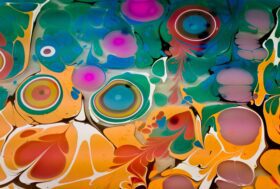How can we maximise children’s scientific learning?


Dr Julian Grenier, Headteacher, Sheringham Nursery School and Children’s Centre, Director, East London Research School
Young children are naturally inquisitive. Popularly, we say that some children are ‘into everything’. Academically, Alison Gopnik – one of the world’s leading experts on child development – talks about the baby as ‘the scientist in the crib’ (Gopnik et al., 1999). If children are primed to learn about the world and are ready to investigate like scientists from their earliest days, what does this mean for us as Early Years educators?
We might begin by acknowledging and celebrating children’s strong disposition to explore and learn about their world. As young children mix different substances together, they may feel, notice and talk about the changes. That will be true whether they are mixing mud, leaves and water together in the mud kitchen, or flour, yeast, salt, oil and honey to make bread. We can understand activities like these as early experiences of learning chemistry. As children push toy boats under the water, they are experiencing forces (pushes and pulls). These will be part of their later learning about physics. Children planting cress seeds on cotton wool or searching for woodlice under logs are learning about living things – biology.
How can we maximise children’s early scientific learning? We need to think about the importance of a richly resourced, stimulating environment. In my experience, this is a strength in many Early Years settings and in schools. If you are working with children aged three to five years old, you might use the ECERS-E environmental rating scales (Sylva et al., 2003) to check quality and set priorities for improvement.
Adult interaction is crucial. We need to think about how we help children to develop their early scientific skills in observation, and their early understanding of key concepts. This is a much trickier area. Some Early Years staff may not feel confident about their own scientific knowledge. They may not know the correct terms to use. The New Zealand government’s Te Ihuwaka/Education Evaluation Centre argues that we need to:
take a deliberate, scientific lens to the learning opportunities available. This will support children with the opportunities to develop the knowledge, skills, dispositions, and working theories that serve as the foundation for ongoing learning in science, and for developing scientific literacy.
(New Zealand Education Review Office, 2021, p. 7)
The child as a ‘natural scientist’
It is appropriate that children from birth to three years old should enjoy open-ended exploration of the world and different materials. This will build on their natural curiosity. We can also widen children’s interests and encounters by introducing new materials and experiences. We can supplement this by visiting places that some children may not have been to before, like a forest or a beach.
However, it is important to step beyond a simplistic view of the child as a ‘natural scientist’. As children grow older in the phase, it is important to think ahead about what we want them to learn. We need to consider the key vocabulary that will be part of this learning. Children might love an interesting and memorable early scientific experience, like seeing Diet Coke exploding out of a bottle when they pop a couple of Mentos in. But a memorable experience is not necessarily rich in memorable learning. The idea that children develop early scientific and mathematical concepts solely through hands-on exploration of materials has been widely challenged. We cannot expect children to stumble across key scientific concepts and vocabulary through self-directed investigation and play.
Professor Robin Millar (2004, p. 7) argues that scientific education is ‘not the discovery or construction of ideas that are new and unknown. Rather it is making what others already know your own.’ The implication of this argument is that an Early Years scientific experiment would illustrate an early concept. It would provide a context for using new vocabulary to describe and explain what we see. However, the science behind the Diet Coke and Mentos experiment is quite complex: it is not an example of a chemical reaction, like baking soda reacting with vinegar.
On the other hand, when it is snowy, the children are likely to talk excitedly about skidding and falling over. We could build on this by introducing words like ‘slippery’, ‘smooth’ and ‘rough’. We could set up an experiment where we slide a block of wood down a smooth surface and down a rough surface. This sort of activity and investigation communicates key concepts and models the key vocabulary in a natural way, so that children enjoy learning it. Millar (2004, p. 7) comments that practical activities ‘should be seen, and judged, as acts of communication and not as opportunities for enquiry’.
One of the most powerful ways in which we can make practical activities effective acts of communication is by using scientific vocabulary. This might be through implicit teaching, like seizing the opportunity of a snowy day or sensitively extending children’s play by introducing scientific terms. Or it might be through explicit teaching, like highlighting and explaining key vocabulary in a book before we read it or as we read it. How many children have enjoyed The Very Hungry Caterpillar without picking up on the word ‘cocoon’ and finding out about how many different larvae of insects spin those silky cases? Do we model other uses of cocoon, like the snug feeling on a cold day of being cocooned in a warm fleece?
The New Zealand government review on science in the Early Years comments:
When teachers introduce scientific concepts, using the correct terminology for those concepts, they promote children’s scientific thinking and knowledge. This helps children share their thinking and explore ideas. It helps move their thinking from “everyday” concepts to “scientific” concepts. Using scientific terms is likely to help children understand that they are “doing science”.
(New Zealand Education Review Office, 2021, p. 8)
Play
Children cannot learn scientific concepts simply through playing freely with materials. However, a recent analysis of the research by the Play in Education, Development and Learning (PEDAL) Centre at the University of Cambridge finds that guided play can be highly effective (Skene et al., 2022). Guided play consists of playful activities that are steered gently by an adult, who also makes sure that the children can explore the intended learning goal in their own way. This means that the adult needs to have a clear intention behind the activity, and needs to understand the scientific concept or concepts that they plan for children to learn. An inspiring example of this approach is Professor Marilyn Fleer’s ‘Conceptual PlayWorld’, in which practitioners create an imaginary scenario with the children (Fleer, 2021). The adult leads and models the play, which motivates the children to find solutions to problems and learn scientific ideas along the way. For example, through a ‘playworld’ based on the book Charlotte’s Web, children explored the imaginary world of Zuckerman’s Farm and found out how to solve the insect problem in the apple orchard. This type of play is rich in potential learning, because the adults and children play together in an imaginative, language-rich way, exploring concepts that would otherwise be difficult to teach to young children.
The dangers of being ‘activity-focused’
Part of the joy of working in the Early Years is that so many spontaneous opportunities arise in well-resourced, play-based environments. When an unplanned situation arises, like finding a mouldy piece of apple behind the Lego box during tidying up:
- We must take advantage of that opportunity
- We need to be clear about key scientific concepts, skills and vocabulary.
That is why Early Years teams need effective programmes of professional development in science. Otherwise, we are in danger of being too ‘activity-focused’ rather than focused on the vocabulary and concepts that we want children to learn. When that goes wrong, children have lots of fun and engaging experiences, but there is an insufficient emphasis on learning.
Concluding thoughts
This discussion of how children learn early scientific concepts might seem daunting. Does every Early Years practitioner need to be a science specialist? I would turn that around in two ways. First of all, we often plan far too much learning in ‘Understanding the World’. If we are choosier and more parsimonious, we might find things more manageable. Secondly, in my experience, many adults enjoy having a chance to refresh their scientific understanding through focused and engaging practical investigations.
Science has been marginalised for many years in the Early Years sector. In the last couple of years, two things have changed that give us an opportunity to put more emphasis on early scientific learning. First of all, Ofsted’s current ‘Education inspection framework’ (2019) prioritises the importance of a broad and balanced curriculum. The EIF is challenging primary school subject leaders. Like all challenges, this can be productive or merely stressful. The worst outcomes of this challenge are complicated attempts to ‘map out’ a science curriculum that starts in nursery. On the other hand, Ofsted’s recent science review (2021) demonstrates how the early vocabulary and concepts that children learn in the EYFS can provide firm foundations for their later learning in science. This respects the EYFS as a phase in its own right, where learning is holistic and not subject-based.
Secondly, the revised EYFS puts a stronger emphasis on early scientific activities, concepts and vocabulary in the specific learning area of ‘Understanding the World’. The framework also clearly shows the interconnection between this and helping children to develop their communication. To put that in a more straightforward way, planting bulbs, watching duck eggs hatch or mixing different substances together are marvellous contexts for extended conversation with children.
We have an opportunity to rethink the importance and the practice of early science. Let’s embrace that challenge positively.
References
- Fleer M (2021) Play in the Early Years. Cambridge: Cambridge University Press.
- Gopnik A, Meltzoff AN and Kuhl PK (1999) The Scientist in the Crib: Minds, Brains, and How Children Learn. New York: William Morrow & Co.
- Millar R (2004) The role of practical work in the teaching and learning of science. Committee on High School Science Laboratories: Role and Vision, National Academy of Sciences Washington, DC. Available at: https://sites.nationalacademies.org/cs/groups/dbassesite/documents/webpage/dbasse_073330.pdf (accessed 16 May 2022).
- New Zealand Education Review Office (2021) Science in the Early Years. Available at: https://ero.govt.nz/sites/default/files/2021-04/Science%20in%20the%20Early%20Years%20Early%20Childhood%20and%20Years%201%20to%204.pdf (accessed 16 May 2022).
- Ofsted (2019) Education inspection framework. Available at: www.gov.uk/government/publications/education-inspection-framework/education-inspection-framework (accessed 16 May 2022).
- Ofsted (2021) Research review series: Science. Available at: www.gov.uk/government/publications/research-review-series-science/research-review-series-science (accessed 16 May 2022).
- Skene K, O’Farrelly CM, Byrne EM et al. (2022) Can guidance during play enhance children’s learning and development in educational contexts? A systematic review and meta‐analysis. Child Development. Epub ahead of print January 2022. DOI: 10.1111/cdev.13730.
- Sylva K, Siraj-Blatchford I and Taggart B (2003) Assessing Quality in the Early Years: Early Childhood Environment Rating Scale: Extension (ECERS-E): Four Curricular Subscales. Stoke on Trent: Trentham Books.









